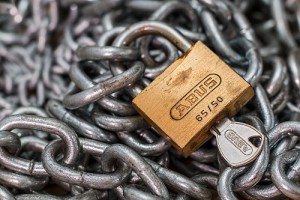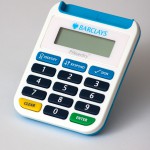Today, all of our financial lives are online. Apart from a few paper records, everything you need to know can be accessed from nearly anywhere in the world, instantly.
The only problem is making sure that you are the only one who has access to it. Fraud and Identity Theft are growing problems, impacting just about everyone, but there are some steps you (and financial institutions) can take to protect themselves.
Keeping Your Information Safe
This may seem basic, but unwittingly giving out your information is still the biggest ways people give up their information to identity thieves and other fraudsters. There are a few best-practices you can use to make sure your information stays safe.
Never, Ever Give Out Your Password
 This may seem obvious, but it remains the most common way people lose access to their accounts. An agent of your financial institutions will never ask for your password (they don’t need it to use their administration tools).
This may seem obvious, but it remains the most common way people lose access to their accounts. An agent of your financial institutions will never ask for your password (they don’t need it to use their administration tools).
This also means that you should never use the same password on a website that houses your financial information that can be seen elsewhere. This is because you don’t know which websites let their staff see your password, or store your password in such a way that it can be decoded easily. There are many news stories of retailers or websites that get “hacked”, and this often leads to users having their accounts compromised on entirely other sites. Since most people use the same email address or username between different services, someone stealing data will try the same username and password combination they steal from one place at many others.
The best approach is to always change your passwords every few months, and keep them different between different accounts.
Keep Your Credit Card Number Safe!
No-one will ever ask for your full credit card number to confirm your identity (although the last four numbers are sometimes asked). There is a popular scam that has been making it around over the last few years where a fake “Collections Agent” will call up random numbers and threaten legal action to the people who pick up for bogus charges. The “Agent” then asks to confirm the credit card number and code on the back of the card. Since the person who picked up the phone is panicking over the legal action, they often provide this information without thinking – a few days later, hundreds or thousands of dollars end up stolen from that card. The same scam is often repeated in emails.
In all cases, if you receive this, do not provide any information (or click on any links in the email), but contact the financial institution they claim to be representing directly.
Other Security Measures
 Your bank or other financial institution might have more protection. If available, use them!
Your bank or other financial institution might have more protection. If available, use them!
One of these is a home PIN device (see left). This device requires you to enter your card and PIN, and gives you a one-time access code that you can use to access your data online. This means if someone doesn’t have both your card and the device, they can’t get in your account!
Your bank or credit institution might also have Chip and Pin technology for credit and debit cards (standard outside the US this is more common). This means instead of using your signature to validated purchases, you use a PIN number. This is also more secure because purchases can’t be made just with the credit card number alone.
Who CAN You Share Your Information With?
There are certain entities that can use your financial data. The most common time is when you’re working with your bank (preferably in person), or applying for credit. They need to ask your social security number, and some other personal information, in order to access your credit history and other information.
Make sure that if you do need to share your information to do business, you confirm they are an authorized financial institution, and ask directly what the information is used for. If the use is outside what you need, you can always refuse.
What To Do When Disposing Of Your Devices
 So you’re getting rid of your computer or phone, how do you make sure your financial data doesn’t get stolen?
So you’re getting rid of your computer or phone, how do you make sure your financial data doesn’t get stolen?
There are lots of complicated ways to do it safely, but there is one sure-fire way to make sure your data can’t be used by someone finding your device you’re getting rid of:
Drill a hole in the hard drive!
This completely destroys the data, and cannot be recovered. Other services and “Cleaners” claim to do the same thing, but the only way to be sure is to put a hole straight through it!
Pop Quiz
It appears that this quiz is not set up correctly.
